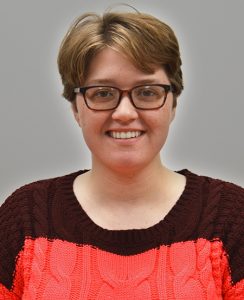
Back-to-School Tips from MEK Math Tutors
Back-to-School Tips from MEK Math Tutors
It’s back to school season and students are gearing up for the coming school year. If you’re going into 7th or 8th grade, you may be preparing for the math section of the BCA or other high school admissions tests. Soon-to-be high school juniors will be brushing up their math skills for the SAT or ACT. Our expert academic counselors and team of passionate MEK teachers are here to help you start your year strong.
Here are top tips from MEK’s expert math tutors for students of all grades so you can ace your classes and get top test scores:
 Rebekah Shore, Math Teacher – Grade 4 Math
Rebekah Shore, Math Teacher – Grade 4 Math
1. Memorize your math multiplication facts!
If you have up to the ten times table memorized, then try up to 12 or 15.
2. Always have a positive attitude towards math.
Never give up when problems become challenging!
3. Try to understand math rather than just doing it.
It helps to explain your problem solving process out loud, as if you were teaching your classmates.
4. Don’t be afraid to ask for help.
 Jessica Conlon, Assistant Director of MEK Learning Circles – Grace 5 Math
Jessica Conlon, Assistant Director of MEK Learning Circles – Grace 5 Math
1. Make sure you have a good notebook just for math and all other school supplies you need.
When your teacher introduces a new type of problem, you can copy down an example in your notebook with a short explanation of how to solve it. It’s never too early to start taking notes!
2. Math gets easier when you remember old topics.
Think about the things you learned last year. Do you remember how to add and subtract fractions? How to solve word problems with money and making change? How to find a rectangle’s perimeter and area?
3. Do you have your times tables memorized?
If you’re not sure, try reviewing them a few times before school starts! Knowing your times tables from 1 through 10, or from 1 through 12, will make harder multiplication and division problems much easier to solve.
 Kourtney Eskins, Math & Science Teacher – Grade 6 Math
Kourtney Eskins, Math & Science Teacher – Grade 6 Math
1. Review previously learned topics.
Students should review the following topics: multi-digit operations, decimal operations and percent problems, fraction operations, and recall area & perimeter formulas for squares and rectangles.
2. Develop a homework routine.
You will get a lot more homework. Don’t wait until the last minute to get started on homework or projects.
3. Be persistent.
Word problems will be more difficult in grade 6. Break down complicated problems by identifying keywords.
4. Participate in class.
Ask for help if you don’t understand the question or the assignment.
 Pranav Gupta, Director of High School Admissions Test Prep & Subject Prep – Algebra II
Pranav Gupta, Director of High School Admissions Test Prep & Subject Prep – Algebra II
1. Appreciate the power of the “equal” sign.
A big part of Algebra 1 is to find missing quantities in a balanced equation. Don’t follow a recipe, but rather stick to the basic principle that what is done on one side of the equation must be done to the other!
2. Another big part of Algebra 1 is visualizing solutions through graphs!
Make an effort to make a connection between the equations and what the graphs look like. Being able to graph using intuition will be a key asset in all levels of math that follows Algebra 1.
3. Understand, don’t memorize!
 Elise Kim, Math Teacher – Geometry
Elise Kim, Math Teacher – Geometry
1. Keep organized notes.
Honors Geometry courses require precise reasoning with tons of definitions, postulates, and theorems. Having those readily accessible will prevent you from getting overwhelmed and facilitate efficient studying. Create a master list for yourself early on and add on to it throughout the semester as you learn more tools.
2. Review consistently.
When getting comfortable with the highly technical use of definitions, postulates, and theorems, it’s more beneficial to review frequently a little at a time rather than infrequently in bulk. Even setting aside just a few minutes a day or every other day to review your notes will help out tremendously in retaining all that information.
3. Get into an argument!
Okay, not seriously, but here’s why it’s relevant. A big part of most honors geometry curricula relies on logical reasoning, i.e. constructing rigorous mathematical arguments where we start from limited given information and must prove a subsequent statement. These are called mathematical “proofs.” I’ve found that students who have some debate team experience particularly excel at constructing logically sound proofs.
4. Don’t be afraid to ask for help.
Honors Geometry courses are usually the first course in which students are introduced to the concept of proofs. It’s very common to struggle at first, so your teacher will understand if you need extra help. You just need to ask.
 Karina Soto, Math Teacher – Algebra II
Karina Soto, Math Teacher – Algebra II
1. Review inequalities with one variable.
2. Review systems of linear equations.
3. Don’t forget geometry because it will come back! Review your rectangles, triangles, circles, etc.
4. Remember how to graph linear and quadratic functions.
 Minjae Park, Math & Science Teacher – Pre-Calculus
Minjae Park, Math & Science Teacher – Pre-Calculus
1. Focus on the relationship between the variables and quantities for a given problem.
For example, trigonometric functions and inverse trigonometric functions are a major unit of pre-calculus which requires an understanding of the relationship between length and angle. By definition, the inverse of trigonometric functions should take the ratio of lengths as input and in turn produce an angle value as an output. While algebra focuses on working with variables, calculus focuses on the behavior of functions, so it is important to understand relationships.
2. Focus on honing the tools you learn in class.
Pre-calculus provides specific tools that are based off of relationships learned in algebra and expand on them to prepare students for more complex problem-solving required for calculus
 Demir Radoncic, Math Teacher – Calculus
Demir Radoncic, Math Teacher – Calculus
1. It’s more important to stay ahead than keep up.
2. Study ahead.
If you are given a syllabus and you know what topics will be covered in class during the following week, it would behoove you to take 1-2 hours on the weekend reading those pages and getting ahead.
Tony Kim, Director of Exam Prep Math – AP Calculus AB
1. Revisit topics.
You’ve learned most of the concepts that will be taught in your school math class already. Revisiting those topics will be a great opportunity to make your core skills stronger.
2. Study your school quizzes for the tests.
Homework will most likely be questions from your textbooks, but teachers usually make quizzes and tests (or at least get those from the same resource).
3. Start looking at AP Calc AB test questions.
You will not be able to solve all the questions yet, but start solving the ones you are able to and make sure to fully understand those. You want to master topics one at a time as you review them in school so you do not have to cram everything in the month of April.
4. Good luck.
 Nicholas Lang, Assistant Director of Subject Prep – AP Calculus BC
Nicholas Lang, Assistant Director of Subject Prep – AP Calculus BC
1. Focus on the fundamental concepts.
In calculus, you need to understand the concepts in class and why you are using each equation, technique, and formula, not just how to use them.
2. Pay attention to the graphs.
It is important to understand how algebraic manipulation and functions affect the shape, directions, and behavior of a graph.
3. Brush up on trigonometry!
It comes up constantly in calculus. You need to have your identities, evaluations, graphs, rules, and techniques from trigonometry on hand at all times to do well in calculus.
4. Practice constantly.
To master BC Calculus, do as many exercises as you can to expose yourself to a variety of problems.
Next Steps
Do any of these tutors resonate with you? Fall tutoring registration is open now!
Our Tutoring Programs offer one-on-one support to students looking to reach their academic or admissions goals. Expert instructors create individualized plans based on your school course materials, timelines for achievement, and milestones for success. And with School Support Tutoring, Academic Enrichment, and Private Test Prep, MEK has solutions to fit the needs of every student.
Seats are limited, so act fast!




